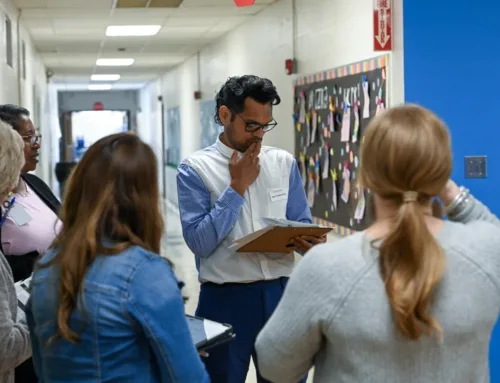“Either we achieve racial equity or white people remain comfortable.
Both cannot happen at the same time.”
As the country steps back from diversity, equity, and inclusion and an ‘anti-woke’ campaign gets traction, what are those of us who believe in and work in the diversity, equity, inclusion & belonging (DEIB) space to do? It’s a question that had me up last night as news ticked up: looming dark elections, banned affirmative action in college admission processes, blocked DEIB activity in colleges and workplaces, and state congressional laws taking action against transgender rights. To say I’m unsettled is an understatement; I am confused, troubled, angry, disheartened.
As an independent consultant who cares deeply about justice, equity, diversity and inclusion I know how much more work is in front of us as a country to repair the harms done to historically excluded groups and to really live up to our value of life, liberty and the pursuit of happiness. I see clearly the scope of injustice that bears itself in every data point that screams, “Uneven playing ground!” in schools, colleges, the workplace. I have felt proud to utilize my own white identity to support white folks in their personal equity journeys as they wrestle with seeing and undoing the ways white culture norms oppress all of us. It has been important work holding this space. It has also been essential for me to receive ongoing equity coaching that pushes me to continuously reflect upon, interrogate, and change my own oppressive ways of being.
And yet, as I consider upcoming contract work, I find the news about DEIB whispering in my ear, “back away from DEIB, it’s not where the work will come.”
Then I hear my transgender friend express with anguish how afraid they are with a possible upcoming Trump presidency, “Maybe I’ll need to move to another country because there is a very real and looming threat of anti-transgender policies and laws.” Two things happen – my heart breaks for everyone who holds this real fear, and my safe and easy idea of stepping back from DEIB work becomes clearly the wrong choice.
In fact, as a white person, there is no greater time or urgency for us to keep working toward justice. As DEIB work becomes unpopular, it’s more important than ever for us to say, “DEI is important, anti-racism work is essential.”
In 2020 there was a surge of DEIB engagement. But for those who ‘woke-up’ in 2020, did you get involved in DEIB in the shadow of George Floyd’s death because you didn’t want to be considered racist? Or was your involvement in DEIB because you honestly had a wake up call to the disparities and injustices that are so everclear to folks who experience them every day?
I’m reaching out to my white colleagues, friends, and saying – NOW. Now we must go public, stay public in our advocacy for equity and justice work. Now we must fight that pull we feel towards white comfort that opens the easy door and allows us to step away from this work. Now we dig in and say, not on my watch. I will not stop taking action towards equity and justice.
💡Here are 4 things white folks can do to challenge the “anti-woke campaign” that is deprioritizing and undoing DEIB progress:
- Challenge your own white comfort. As you feel the pull to ‘go-lighter’ and step back from active DEIB action; reflect on who gains and loses from your pulling back. Journal about your white comfort and why you entered DEIB work in the first place.
What’s one step you can take outside your comfort zone?
- Keep learning about DEIB and your own equity journey. This means reading, watching TED talks, getting equity coaching, interrogating your own biases, advantages, and ways of being. Stay on your own learning edge.
What’s one way you can apply what you’re learning to where you work or where your children go to school?
- Actively listen to historically excluded voices to hear what they need. This doesn’t mean to go interview people of color for their perspective, but it does mean pay attention to what you hear historically excluded people saying (and not saying). Let this serve as a compass for where to contribute your voice and action.
What historically excluded voices (Black, Indigenous, LatinA, Asian, LGBTQIA+) will you focus your attention on to hear their truths and amplify their voices?
- With this clarity, act to disrupt internalized white superiority. Start with yourself. Notice internalized superiority in others and practice asking tough questions of colleagues and friends.
Where do you center yourself, your interests and needs? Where do you find yourself looking down upon others, prioritizing your own power and rights over others?
Equity work is not the same as clothing trends, where one year it’s ‘cool’ and the next it’s not. Equity work will require all of us to stay engaged and keep practicing. We must challenge school boards seeking to ban books and whitewash curriculum so that white children are protected from ‘discomfort.’ We must speak out at city councils, local, state, and federal governments against anti-woke campaigns seeking to erase progress. We must form coalitions in our organizations to keep DEIB and Belonging in the forefront in hiring, inclusive decision-making, staff and budget decisions. And we must challenge our loved ones to think critically about this tide of action towards anti-wokeness. Equity work requires us to be courageous enough to keep seeing injustice, speaking out and working towards structural change.
“The arc of the moral universe is long, but it bends towards justice.”
Martin Luther King Jr.
About the Author:
Mariah Cone, Ed.D. launched Holonomy Consulting in 2021. She has been committed to her own equity journey work with powerful equity coaches Emily Roh and Eloiza Jorge LCSW. Since 2022, she has been supporting white affinity groups in their journey towards collective healing, antiracism learning and DEIB action work. Her approach is to build the kind of container for white folks to confront the shame, fear, and vulnerability connected to whiteness. She creates dynamic places of learning where the group can simultaneously work at their growth edge while experiencing safety through trusting relationships. Click here to learn more about how Holonomy Consulting can help your organization.



